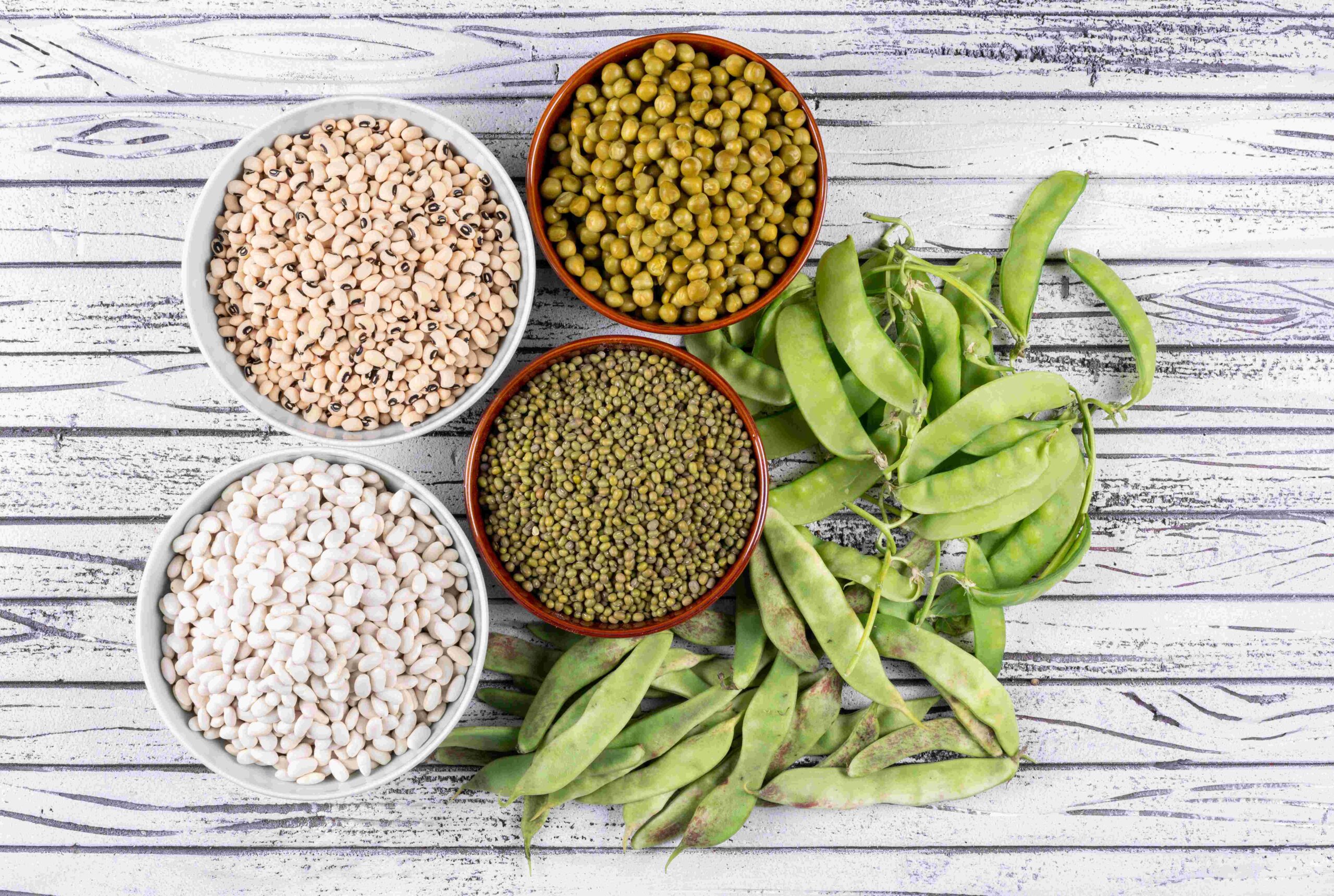It’s a fantastic option for those seeking to meet their protein needs without consuming animal products. Here’s a breakdown:
What is it?
Vegan protein powder is a powdered supplement made from plant-based sources such as peas, rice, hemp, soy, or a blend of these.
It’s designed to provide a concentrated source of protein, often with added vitamins, minerals, and sometimes fiber.
Why choose vegan?
For many, adopting a vegan lifestyle aligns with ethical, environmental, or health-related concerns.
Vegan protein powder offers a way to support muscle growth and repair, even for those avoiding animal products.
Nutritional benefits
While animal proteins are complete, meaning they contain all essential amino acids, some plant proteins are deficient in one or more.
However, by combining different plant protein sources, like pea and rice, vegan powders can offer a complete amino acid profile.
They’re also typically lower in saturated fat and cholesterol compared to animal-based options.
Types of vegan protein
There are various types of vegan protein powders, each with its own taste, texture, and nutritional profile.
Popular options include pea protein (rich in branched-chain amino acids), rice protein (hypoallergenic and easily digestible), hemp protein (providing omega-3 fatty acids), soy protein (complete protein source), and blends combining multiple plant sources for a more comprehensive amino acid profile.
How to use
Vegan protein powder can be easily incorporated into your diet.
You can mix it with water, plant-based milk, or blend it into smoothies, shakes, or even use it in baking recipes like pancakes or muffins.
Considerations
While vegan protein powders offer numerous benefits, it’s essential to check the ingredients to ensure they align with your dietary preferences and needs.
Some powders may contain added sugars, artificial flavors, or allergens like soy or gluten, so always read the label.
Choosing the right one
Experiment with different brands and types to find the vegan protein powder that suits your taste preferences and dietary requirements best.
Look for products that are third-party tested for quality and purity.
By incorporating vegan protein powder into your diet, you can easily boost your protein intake while supporting your overall health and wellness goals, all without the need for animal products.
Pea protein
Pea protein is a popular plant-based protein powder derived from yellow peas, also known as Pisum sativum.
Here’s a closer look at pea protein:
Nutritional Profile
Pea protein is renowned for its high protein content, typically containing around 20-25 grams of protein per serving.
It’s also low in carbohydrates and fat, making it an excellent option for those looking to increase protein intake without consuming excess calories.
Amino Acid Profile
While pea protein is not a complete protein on its own, as it lacks sufficient levels of certain essential amino acids like methionine, it is rich in other essential amino acids such as lysine, arginine, and branched-chain amino acids (BCAAs) like leucine, isoleucine, and valine.
Combining pea protein with other plant-based protein sources, such as rice protein, can create a complete amino acid profile.
Digestibility
Pea protein is generally well-tolerated and easily digestible for most people, including those with soy or dairy allergies.
However, some individuals may experience digestive discomfort, such as bloating or gas, particularly when consuming large amounts.
If you’re new to pea protein, start with a small serving size to gauge your tolerance.
Allergen Information
Pea protein is naturally free from common allergens like dairy, soy, and gluten, making it suitable for individuals with food sensitivities or allergies.
Versatility
Pea protein powder is incredibly versatile and can be used in a variety of ways.
You can mix it with water, plant-based milk, or blend it into smoothies, shakes, or baked goods like pancakes or muffins.
Its mild flavor makes it easy to incorporate into various recipes without overpowering other ingredients.
Health Benefits
Beyond its protein content, pea protein offers additional health benefits.
It’s rich in iron, which is essential for oxygen transport in the body, as well as containing other vitamins and minerals like zinc and magnesium.
Pea protein has also been linked to potential benefits for heart health, muscle building and repair, and weight management.
Sustainability
Pea protein is considered a sustainable protein source compared to animal-based protein sources like whey or casein, as it requires fewer natural resources and produces fewer greenhouse gas emissions.
Overall, pea protein is a convenient and nutritious option for individuals looking to boost their protein intake, whether for muscle building, weight management, or simply to meet their dietary needs on a plant-based diet.
Rice protein
Rice protein is another popular plant-based protein powder sourced from brown or white rice. Here’s an overview of rice protein:
Protein Content
Rice protein typically contains around 20-25 grams of protein per serving, similar to pea protein.
It’s a high-quality protein source and provides all the essential amino acids necessary for muscle growth and repair.
However, like pea protein, rice protein is not a complete protein on its own, as it may be lower in certain amino acids like lysine.
Digestibility
Rice protein is generally well-tolerated and easily digestible for most people, making it suitable for individuals with digestive sensitivities or allergies to common allergens like dairy, soy, or gluten.
It’s also considered hypoallergenic, making it a gentler option for those with food intolerances.
Nutritional Profile
In addition to protein, rice protein powder may also contain carbohydrates and a small amount of fat, depending on the processing method.
Some rice protein powders are further processed to remove carbohydrates and fats, resulting in a more concentrated protein powder.
Allergen Information
Rice protein is naturally free from common allergens like dairy, soy, and gluten, making it an excellent choice for individuals with food sensitivities or allergies.
Versatility
Like pea protein, rice protein powder is highly versatile and can be easily incorporated into various recipes.
It has a neutral flavor profile, making it suitable for adding to smoothies, shakes, baked goods, or savory dishes without significantly altering the taste.
Sustainability
Rice protein is considered a relatively sustainable protein source, especially compared to animal-based protein sources.
However, there may be environmental concerns associated with rice cultivation, such as water usage and pesticide use, depending on the farming practices employed.
Health Benefits
Rice protein offers several health benefits beyond its protein content. It’s naturally cholesterol-free and low in fat, making it a heart-healthy protein option.
Additionally, rice protein is rich in vitamins and minerals, including B vitamins, iron, and magnesium.
Overall, rice protein is a convenient and nutritious option for individuals looking to increase their protein intake, particularly those following a plant-based or vegan diet.
It provides a high-quality protein source with excellent digestibility and versatility in cooking and baking applications.
Hemp protein
Hemp protein is a plant-based protein powder derived from the seeds of the hemp plant, Cannabis sativa. Here’s what you need to know about hemp protein:
Protein Content
Hemp protein is a rich source of protein, typically containing around 15-20 grams of protein per serving. While it may not have as high a protein content as pea or rice protein, it still offers a substantial amount of protein per serving.
Amino Acid Profile
Hemp protein is considered a complete protein, meaning it contains all nine essential amino acids that the body cannot produce on its own.
It’s particularly rich in amino acids like arginine, which plays a crucial role in protein synthesis and immune function.
Omega Fatty Acids
Hemp protein is unique in that it’s also a good source of essential fatty acids, particularly omega-3 and omega-6 fatty acids, in a balanced ratio. These fatty acids are important for brain health, heart health, and inflammation regulation in the body.
Digestibility
Hemp protein is generally well-tolerated and easily digestible for most people.
It’s also hypoallergenic, making it suitable for individuals with food sensitivities or allergies to common allergens like dairy, soy, or gluten.
Nutritional Profile
Hemp protein is rich in protein, essential fatty acids, fiber, vitamins (e.g., vitamin E), and minerals (e.g., magnesium, iron, zinc), boosting its nutritional value.
Versatility
Hemp protein powder has a slightly nutty or earthy flavor, which can complement both sweet and savory recipes.
It can be mixed with water, plant-based milk, or blended into smoothies, shakes, or baked goods.
However, its distinct flavor may not suit all tastes, so it’s worth experimenting with different recipes to find what works best for you.
Sustainability
Hemp is considered a highly sustainable crop, requiring minimal water, pesticides, or herbicides to grow.
It also has a relatively short growing cycle and can thrive in a variety of climates, making it an environmentally friendly protein source.
Regulatory Considerations
While hemp comes from the same plant species as marijuana, it contains negligible amounts of THC (tetrahydrocannabinol), the psychoactive compound found in marijuana.
As a result, hemp protein products are legal and safe for consumption in most countries.
Overall, hemp protein is a nutritious and sustainable protein source that offers a range of health benefits beyond just protein.
It’s an excellent option for individuals looking to boost their protein intake while also incorporating essential fatty acids and other nutrients into their diet.
Soy protein
Soy protein is a plant-based protein derived from soybeans, a legume native to East Asia. Here’s what you should know about soy protein:
Protein Content
Soy protein is a high-quality protein source, containing all nine essential amino acids that the body needs.
It typically provides around 20-25 grams of protein per serving, similar to animal-based protein sources like whey protein.
Complete Protein
Unlike many plant-based protein sources, soy protein is a complete protein, meaning it contains all essential amino acids in sufficient quantities.
This makes it an excellent protein option for vegetarians, vegans, or anyone looking to reduce their intake of animal products.
Health Benefits
Soy protein has been extensively studied for its potential health benefits.
It’s been associated with improvements in heart health, bone health, and menopausal symptoms.
Additionally, soy protein may help lower cholesterol levels and reduce the risk of certain cancers, such as breast and prostate cancer.
Isoflavones
Soybeans are rich in compounds called isoflavones, which have antioxidant and phytoestrogenic properties.
These compounds in soy may offer health benefits, but further research is necessary for a complete understanding of their effects.
Digestibility
Soy protein is highly digestible and well-tolerated by most people.
Some individuals might have digestive issues or soy allergies, so monitor your body’s reaction when adding soy protein to your diet.
Versatility
Soy protein powder is incredibly versatile and can be used in a variety of recipes.
It has a neutral flavor profile, making it suitable for adding to smoothies, shakes, baked goods, or savory dishes without significantly altering the taste.
It’s available in various forms, including isolate, concentrate, and textured soy protein (TVP).
Sustainability
Soybeans are considered a relatively sustainable crop, requiring fewer resources like water and land compared to animal agriculture.
However, there are concerns about deforestation and habitat destruction associated with soybean cultivation, particularly in regions like the Amazon rainforest.
Choosing organic or sustainably sourced soy products can help mitigate these environmental impacts.
Allergen Information
Soy protein is beneficial but is a top allergen, especially for children.
Individuals with soy allergies should avoid soy-based products and opt for alternative protein sources.
Overall, soy protein is a nutritious and versatile protein option with numerous health benefits.
However, it’s essential to consider individual preferences, dietary restrictions, and potential allergens when incorporating soy protein into your diet.

